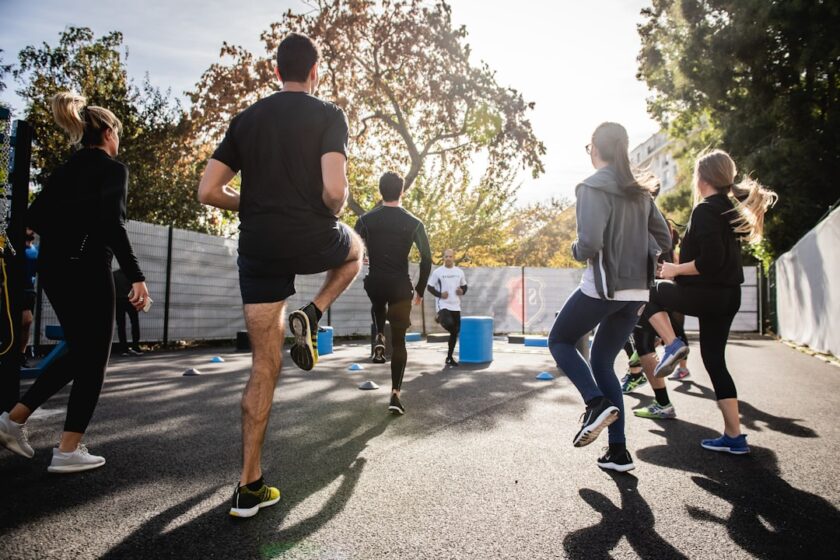Fitness FAQs: Your Ultimate Guide to a Healthier Lifestyle
In the journey towards better health, fitness plays a crucial role. With so much information available, it’s normal to have questions. In this comprehensive guide, we’ll tackle some of the most common fitness FAQs, covering everything from workouts to nutrition. Let’s get started!
What is Fitness?
Fitness refers to your overall physical health, encompassing strength, endurance, flexibility, and body composition. It’s not just about workouts; it involves a holistic approach to living a healthy lifestyle. Here are the main components of fitness:
- Aerobic Fitness: The ability of your heart and lungs to supply oxygen during sustained physical activity.
- Muscular Strength: The maximum amount of force a muscle or muscle group can exert.
- Muscular Endurance: The ability of a muscle to perform repeated contractions over a period.
- Flexibility: The range of motion available at a joint.
- Body Composition: The proportion of fat and non-fat mass in your body.
How Often Should I Exercise?
The frequency of exercise can depend on your goals, but general recommendations include:
- At least 150 minutes per week of moderate aerobic activity or 75 minutes of vigorous activity.
- Strength training for all major muscle groups at least twice a week.
- Incorporating flexibility and balance exercises, especially for older adults.
What Type of Exercise is Best?
The best type of exercise depends on your fitness goals, preferences, and any existing health conditions. However, a well-rounded fitness routine should include:
Aerobic (Cardio) Exercises
- Walking
- Running
- Cycling
- Swimming
- Dancing
Strength Training
- Weight lifting
- Bodyweight exercises, such as push-ups and squats
- Resistance band exercises
Flexibility Exercises
- Yoga
- Stretching routines
- Pilates
How Can I Stay Motivated to Work Out?
Staying motivated can be challenging, but these tips can help:
- Set realistic and specific goals.
- Create a workout schedule and stick to it.
- Find a workout buddy for accountability.
- Track your progress to see improvements.
- Mix things up to avoid boredom.
- Reward yourself for reaching milestones.
What Should I Eat Before and After Exercise?
Nutrition plays a significant role in enhancing your fitness regimen. Here’s how to fuel your workouts:
Before Exercise
- Aim for a balanced meal with carbs and protein 2–3 hours beforehand.
- For a quick snack, consider bananas, yogurt, or a small smoothie 30 minutes prior.
After Exercise
- Consume a meal rich in protein and carbohydrates within 30 minutes to aid recovery.
- Examples include grilled chicken with rice or a protein shake with fruit.
How Much Water Should I Drink?
Staying hydrated is essential for optimal performance and recovery. General recommendations include:
- Drink at least 8 glasses (64 ounces) of water daily.
- Increase intake based on activity level and temperature.
- Drink before, during, and after workouts to maintain hydration.
Are Supplements Necessary for Fitness?
While a balanced diet is the best way to get nutrients, some may benefit from supplements. Here’s a quick breakdown:
- Protein Powder: Useful for those who struggle to meet protein needs through food alone.
- Multivitamins: Can help fill nutritional gaps, but whole foods are preferred.
- Creatine: May enhance performance and recovery in high-intensity workouts.
Before starting any supplement, consult with a healthcare professional.
How Does Sleep Affect Fitness?
Sleep is often overlooked but is vital for recovery and performance. Here’s how:
- Adequate sleep helps improve muscle recovery and growth.
- Sleep deprivation can lead to decreased energy levels and performance.
- Aim for 7-9 hours of quality sleep each night.
What Common Mistakes Should I Avoid?
To optimize your fitness journey, be mindful of these common pitfalls:
- Skipping warm-up and cool-down exercises.
- Lifting weights that are too heavy without proper form.
- Setting unrealistic expectations.
- Neglecting rest days, which are crucial for recovery.
Conclusion
Your fitness journey is personal and unique. With the right information and mindset, you can achieve your health goals. Whether you’re just starting or looking to enhance your routine, understanding the fundamentals of fitness can make a difference. Remember, consistency is key, and small changes can lead to significant results over time.
For more tips and resources, check out our other articles on nutrition, workouts, and staying motivated.



